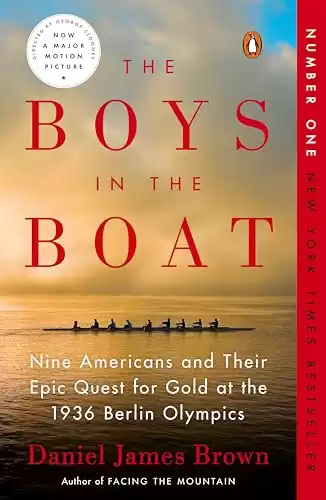
In the vast, vibrant world of youth sports, fathers hold a unique position to influence not only their children’s athletic experiences but also their personal development, character building, and life skills acquisition. As coaches, cheerleaders, and mentors, dads play multifaceted roles that extend far beyond the sidelines. This article explores the positive impact dads can have in kids’ sports, offering insights and strategies to maximize their contribution.
The Coach: More Than Just Strategies and Skills
Many dads take on the literal role of a coach, but their influence as a coach extends into the metaphorical realm as well. Beyond teaching the nuances of the game, dads have the opportunity to instill values such as teamwork, perseverance, and sportsmanship. These lessons are crucial, as they help children understand the importance of working together, striving to improve, and handling both victories and defeats with grace.
Strategy for Positive Coaching:
-
- Emphasize Effort Over Winning: Encourage kids to give their best, regardless of the outcome. This mindset helps build resilience and a love for the game itself, rather than just the results.
-
- Teach Life Skills Through Sports: Use sports as a platform to teach broader life skills, such as time management (balancing sports and academics), the importance of practice and dedication, and the value of good sportsmanship.
The Cheerleader: Providing Emotional Support
Dads also play a crucial role in providing emotional support. Their encouragement can boost a child’s confidence and enjoyment of the sport. Positive reinforcement and acknowledging the effort (not just talent or wins) are key.
Strategies for Positive Cheerleading:
-
- Celebrate Efforts and Small Victories: Make a point to recognize hard work, improvement, and team contributions, not just scoring or winning.
-
- Stay Positive, Even in Defeat: Teach kids to find learning opportunities in losses and to handle disappointments with resilience, turning setbacks into teachable moments.
The Mentor: Guiding Personal Growth
Perhaps the most profound role dads can play in youth sports is that of a mentor. This involves guiding children in their personal growth and helping them navigate the challenges and pressures that come with competitive sports.
Strategies for Effective Mentoring:
-
- Open Lines of Communication: Encourage kids to express their feelings about their sport, discussing both joys and challenges. This open dialogue fosters trust and helps kids feel supported both on and off the field.
-
- Model Positive Behavior: Children learn by example. Dads can model behaviors such as respect for officials and opponents, commitment to practice, and positive team interactions.
The Balance: Being a Dad First
While being a coach, cheerleader, and mentor are important, the most crucial role is simply being a dad. This means knowing when to step back and let children have their own experiences, make mistakes, and learn from them. It’s about balancing involvement with allowing kids the space to grow independently.
Strategies for Balancing Roles:
-
- Know When to Step Back: Allow kids to solve some problems on their own, providing guidance only when necessary. This autonomy builds decision-making skills and confidence.
-
- Encourage Multi-Dimensional Growth: Support interests outside of sports to foster a well-rounded personality. This shows children that their value and identity extend beyond their athletic abilities.
In conclusion, dads have a powerful opportunity to influence their children’s sports experiences positively. By adopting the roles of coach, cheerleader, and mentor judiciously, they can contribute significantly to their children’s personal growth, skill development, and lifelong love for sports. The key is to approach these roles with intention, empathy, and a clear understanding of the long-term impact they can have on their children’s lives.
Recommended Reading on Fathers in Sports
- 4.6
$19.00$11.79“The Boys in the Boat” tells the riveting true story of nine working-class American rowers from the University of Washington who overcame social, economic, and physical challenges to win gold at the 1936 Berlin Olympics, triumphing against the backdrop of the Nazi regime and exemplifying the enduring human spirit of resilience and teamwork.
Buy On AmazonPros:- Inspirational, Historically rich, Engaging, Well-researched
Cons:- Lengthy, Complex characters, Dense history, Limited perspectives
We earn a commission if you make a purchase, at no additional cost to you.
03/06/2025 11:49 am GMT - 4.9$9.95
“#HeySportsParents: An Essential Guide for any Parent with a Child in Sports” serves as a comprehensive manual, offering parents valuable insights and practical advice on navigating the complexities of youth sports, from fostering a positive environment to handling the challenges of competitive play, ensuring their children’s experiences are both enriching and enjoyable.
Buy On AmazonPros:- Informative, Supportive, Practical, Insightful
Cons:- Niche audience, Basic concepts, Lengthy, Repetitive
We earn a commission if you make a purchase, at no additional cost to you.
03/06/2025 10:06 am GMT - 4.6
$25.00$17.01“Fathers & Daughters & Sports,” a compelling collection of essays from celebrated figures such as Jim Craig, Chris Evert, Mike Golic, Doris Kearns Goodwin, Sally Jenkins, Steve Rushin, Bill Simmons, and more, delves into the profound and multifaceted relationships between fathers and daughters through the lens of sports, offering readers a mosaic of heartfelt, inspiring, and often humorous stories that highlight the bonds forged and lessons learned on fields, courts, and in the stands.
Buy On AmazonPros:- Inspiring, Diverse perspectives, Insightful, Heartwarming
Cons:- Niche appeal, Varied quality, Limited scope, Subjective viewpoints
We earn a commission if you make a purchase, at no additional cost to you.
03/06/2025 01:13 pm GMT
FREQUENTLY ASKED QUESTIONS
The Positive Playbook is a guidebook or resource designed to highlight the influential role fathers play in youth sports, emphasizing positive behaviors, encouragement, and support.
Dads play a crucial role in youth sports by providing support, guidance, and encouragement to their children. They help instill important values such as teamwork, perseverance, and sportsmanship.
The Positive Playbook may cover topics such as fostering a positive sports environment, effective communication with coaches and children, teaching life lessons through sports, and balancing competition with fun and enjoyment.
Dads can positively impact their children’s sports experience by being supportive, attending games and practices, providing constructive feedback, emphasizing effort over outcome, and serving as positive role models.
Common challenges may include managing expectations, dealing with pressure to win, navigating conflicts with coaches or other parents, and balancing sports with other commitments.
Effective communication involves active listening, offering constructive feedback, focusing on effort and improvement, and emphasizing the importance of enjoying the game regardless of the outcome.
Dads can support their children’s emotional well-being by validating their feelings, teaching resilience and coping skills, fostering a positive mindset, and helping them develop healthy attitudes towards success and failure.
Dads can model good sportsmanship by demonstrating respect for opponents, officials, and teammates, encouraging fair play, and emphasizing the importance of integrity and ethical behavior on and off the field.
Dads can help their children develop resilience by providing encouragement, helping them learn from mistakes, reframing setbacks as learning opportunities, and offering unconditional support.
Dads can contribute to a positive sports culture by promoting inclusivity, respect, and teamwork, advocating for fair treatment of all players, and actively participating in community sports programs and initiatives.







